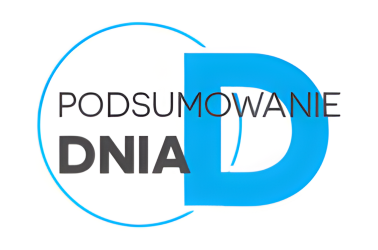- US markets suffered their worst selloff since 2022 as Trump's sweeping tariff announcement shocked investors. TheUS500 plunged 1.8% (on track for its biggest one-day loss since 2022), the tech-heavy US100 tumbled 1.5%, and the US30 2% (approximately 1,248 points).
- European markets recorded steep losses with the German DAX plummeting 3%, the French CAC 40 down 3% and Italian stocks experiencing their worst single-day performance in over two years. The pan-European STOXX 600 sank 2.7% to its lowest level since January, now more than 7% below its early March record close.
- President Trump implemented extensive "reciprocal tariffs" on what he called "Liberation Day," imposing a universal 10% tariff on all US imports plus higher country-specific levies. China faces an additional 34% (total 54%), European Union 20%, Vietnam 46%, Thailand 37%, with other countries facing tariffs between 20-49%. Implementation begins April 5 for universal tariffs and April 9 for country-specific hikes.
- Oil markets faced a punishing selloff Thursday as crude tumbled the most since 2020, hit by the double shock of President Donald Trump's sweeping tariff announcement and OPEC+'s unexpected decision to accelerate production increases. West Texas Intermediate (OIL.WTI) futures plunged as much as 7.4% to trade below $67 a barrel, while global benchmark Brent (OIL) plummeted over 7% to slip below $70.
- Apple shares tumbled 8%, wiping out $280 billion in market cap as investors assessed tariff impact. Approximately 85% of iPhones are made in China (facing 54% tariffs) and 15% in India (facing 26% tariffs). Jefferies analyst warned tariffs could reduce Apple's fiscal 2025 net profit by 14% if exemptions aren't granted, while Rosenblatt analyst noted the company could face $39.5 billion in tariff costs.
- Banking sector hit hard with the KBW Nasdaq Bank Index plummeting over 8%. Citigroup led major bank losses (-9.9%), followed by Bank of America (-9%), with Goldman Sachs, Morgan Stanley, and Wells Fargo all dropping between 7.6-7.9%. The index is now down nearly 12% year to date amid ongoing policy uncertainty.
- Retail and consumer stocks collapsed with Five Below, Dollar Tree and Gap suffering double-digit percentage losses. Nike and Walmart slumped as tariffs hit major production hubs, while sporting goods makers Adidas and Puma both plummeted over 11% as their key sourcing markets were hit with steep levies.
- Pharmaceutical stocks gained temporarily as drugmakers were spared from immediate tariffs, benefiting major exporters in India, Japan and Ireland. AbbVie and Johnson & Johnson rose about 2%, defying the broader market drop. However, a US official indicated separate pharmaceutical-sector tariffs are planned for the future, with Trump predicting pharma companies will come "roaring back" to the US or face "a big tax to pay."
- Bank of America strategists warned the tariffs matched "the worst-case scenario" and could increase US inflation by 1-1.5% while causing similar drag on GDP, putting the economy "on the precipice of recession." UBS estimates tariffs could reduce real GDP by 1.5-2 percentage points in 2025 while pushing inflation toward 5%.
- Trade war concerns overshadowed positive jobless claims data, which fell by 6,000 for the week ended March 29, pointing to continued labor market stability ahead of Friday's closely watched nonfarm payrolls report.
- Federal Reserve faces difficult policy decisions with traders now pricing in four rate cuts this year as recession worries outweigh inflation concerns. Fed Vice Chair Philip Jefferson stated there is "no need to be in a hurry" to adjust rates, emphasizing the importance of evaluating the cumulative effect of policy changes.
- EIA report signals higher than expected growth in natural gas storage which grew by 29 bcf (compared with est. 27 bcf). This led to over 1% sell-off of the NATGAS futures. However, the price is still over 3% higher than yesterday's closing price.
- Bipartisan Senate bill introduced by Chuck Grassley (R) and Maria Cantwell (D) to curtail presidential tariff authority. The "Trade Review Act of 2025" would require congressional approval for new tariffs within 60 days. Senator Rand Paul warned that previous significant tariff impositions led to major Republican electoral losses.

Daily Summary - Powerful NFP report could delay Fed rate cuts

BREAKING: Massive increase in US oil reserves!

Palo Alto acquires CyberArk. A new leader in cybersecurity!

US OPEN: Blowout Payrolls Signal Slower Path for Rate Cuts?
The material on this page does not constitute as financial advice and does not take into account your level of understanding, investment objectives, financial situation or any other particular needs.
All the information provided, including opinions, market research, mathematical results and technical analyses published on the website or transmitted to you by other means is provided for information purposes only and should in no event be interpreted as an offer of, or solicitation for, a transaction in any financial instrument, nor should the information provided be construed as advice of legal or fiscal nature.
Any investment decisions you make shall be based exclusively on your level of understanding, investment objectives, financial situation or any other particular needs. Any decision to act on information published on the website or transmitted to you by other means is entirely at your own risk. You are solely responsible for such decisions.
If you are in doubt or are not sure that you understand a particular product, instrument, service, or transaction, you should seek professional or legal advice before trading.
Investing in OTC Derivatives carries a high degree of risk, as they are leveraged based products and often small movements in the market could lead to much larger movements in the value of your investment and this could work against you or for you. Please ensure that you fully understand the risks involved, taking into account your investments objectives and level of experience, before trading, and if necessary, seek independent advice.


